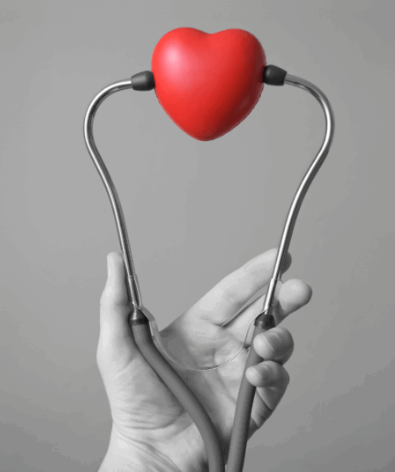
15 Natural Supplements to Help Boost Your Energy and Beat Fatigue
If you’ve been feeling sluggish lately—mentally, physically, or both—you’re not alone. Whether it’s due to stress, lack of sleep, or dietary gaps, low energy can sneak up and make everyday tasks feel like a chore. The good news? Certain vitamins and supplements can help support energy production and reduce fatigue naturally.
Here’s a breakdown of the top nutrients and supplements that may help you restore your energy and vitality.
Recognizing Low Energy Symptoms
Fatigue isn’t always just “feeling tired.” It can show up as:
- Muscle weakness or cramping
- Brain fog and memory lapses
- Irritability or mood swings
- Sleep issues
- Hair thinning or loss
- Frequent infections
Often, these signs are linked to poor diet, chronic stress, sleep deprivation, or underlying health conditions like anemia or thyroid dysfunction.
Understanding How the Body Produces Energy
Our bodies convert nutrients into energy through cellular respiration, a process that happens inside the mitochondria of our cells. The end product is ATP (adenosine triphosphate)—the fuel our cells need to function. When key nutrients are missing, that process can slow down, leading to noticeable dips in energy.
The Top Vitamins and Supplements for Natural Energy Support
1. B Vitamins (B1–B12)
This family of eight vitamins plays a central role in converting food into fuel. They help regulate metabolism, support brain function, and assist in red blood cell production. Deficiencies—especially in B12 or B6—can result in fatigue and low mood.
Good sources: Whole grains, leafy greens, legumes, eggs, dairy, and fortified cereals.
If you’re vegan or vegetarian, pay close attention to B12 intake and consider supplementation, especially as absorption naturally declines with age.
2. Vitamin C
Beyond immune support, vitamin C helps reduce oxidative stress and fatigue. It assists in iron absorption and has been shown to help reduce both physical and mental tiredness.
Good sources: Citrus fruits, strawberries, bell peppers, and kiwis.
3. Vitamin D
Low vitamin D levels are linked to tiredness, muscle weakness, and mood imbalances. Since many people don’t get enough sunlight—especially during winter—this is one of the most common deficiencies worldwide.
Good sources: Sunshine, fortified plant-based milks, and mushrooms. If needed, a supplement may help.
4. Vitamin E
This antioxidant protects cells from oxidative damage, supports circulation, and can aid energy levels by reducing fatigue in some individuals.
Good sources: Almonds, sunflower seeds, spinach, and avocado.
5. Iron
Iron is essential for carrying oxygen throughout your body. Without enough of it, your cells don’t get the oxygen they need to produce energy, leaving you feeling constantly drained.
Good sources: Beans, lentils, spinach, pumpkin seeds, and iron-fortified cereals.
Women, especially those post-menopause, should check iron levels with a doctor before supplementing.
6. Coenzyme Q10 (CoQ10)
A powerful antioxidant found in every cell, CoQ10 helps generate energy at the cellular level. It’s especially helpful for older adults, as levels decrease with age.
Good sources: Found in small amounts in oils like olive or peanut oil, and peanuts.
7. Magnesium
This mineral plays a role in hundreds of cellular reactions, including energy production. Low magnesium can result in muscle cramps, irritability, and fatigue.
Good sources: Nuts, seeds, whole grains, leafy greens, and dark chocolate.
8. Ashwagandha
An adaptogenic herb used in Ayurvedic medicine, ashwagandha helps your body handle stress and supports adrenal health. It can help reduce feelings of exhaustion and mental fatigue.
Note: Avoid if pregnant, and always consult your provider first.
9. Rhodiola Rosea
This plant extract may enhance mental clarity and physical stamina. It works by supporting the body’s stress response and increasing red blood cells’ oxygen-carrying capacity.
Avoid if taking blood thinners or vitamin E supplements unless approved by a doctor.
10. Ginseng
Often used for centuries in traditional medicine, ginseng may improve cognitive performance and reduce fatigue by supporting the body’s response to stress.
11. Melatonin
If your energy issues are tied to poor sleep, melatonin can help regulate your sleep cycle. Better sleep = better daytime energy.
12. Tyrosine
This amino acid helps with the production of dopamine and norepinephrine—two neurotransmitters involved in focus, motivation, and alertness.
Good sources: Soy products, dairy, and sesame seeds.
13. Omega-3 Fatty Acids
Known for supporting brain and heart health, omega-3s also help reduce fatigue, particularly when tied to inflammation.
Good sources: Chia seeds, flaxseeds, walnuts, and Brussels sprouts.
14. Creatine
While often associated with athletes, creatine boosts energy during short bursts of high-intensity activity by replenishing ATP. It may also support brain energy metabolism.
15. Beetroot Powder
Rich in nitrates, beetroot improves circulation and oxygen delivery, which helps endurance and stamina, especially during exercise.
How These Nutrients Work Together
Many of these vitamins and supplements work best in combination. For instance, B vitamins work in tandem to support metabolism, while magnesium and CoQ10 support mitochondrial energy production. Synergy matters—so does getting enough from food whenever possible.
Do You Need Supplements?
If you’re eating a well-balanced diet and still feel drained, consider having your vitamin and mineral levels tested. Age, lifestyle, and certain medications can all interfere with nutrient absorption.
Before adding any new supplement to your routine, talk to your healthcare provider—especially if you’re taking medication or managing chronic conditions.
Lifestyle Tips to Naturally Boost Energy
Supplements aren’t a substitute for healthy habits. To truly feel more energized:
- Stay active—regular movement helps improve stamina
- Get consistent sleep—7 to 9 hours a night supports recovery
- Eat nutrient-rich meals—focus on whole, unprocessed foods
- Stay hydrated—even mild dehydration can make you feel sluggish
- Manage stress—mindfulness, breathwork, and rest can go a long way
Final Thoughts
Feeling constantly tired doesn’t have to be your new normal. With the right nutrition, targeted supplementation (when necessary), and mindful lifestyle choices, you can reclaim your energy and thrive at any stage of life. Listen to your body, fuel it well, and don’t hesitate to seek guidance to find the right combination that works for you.






